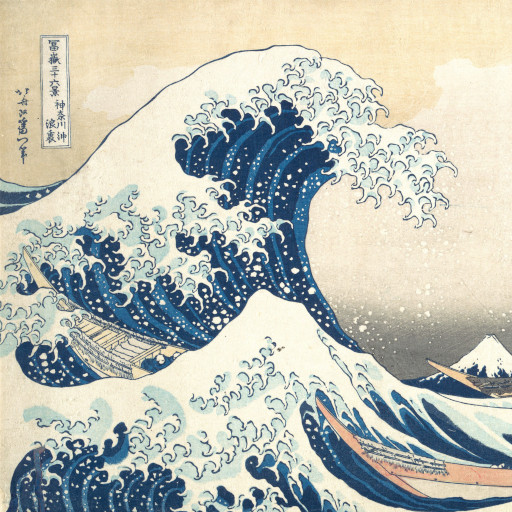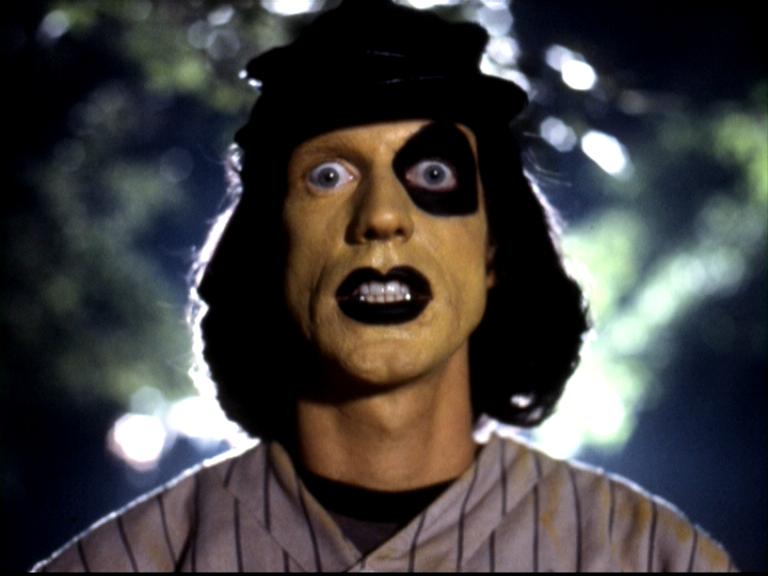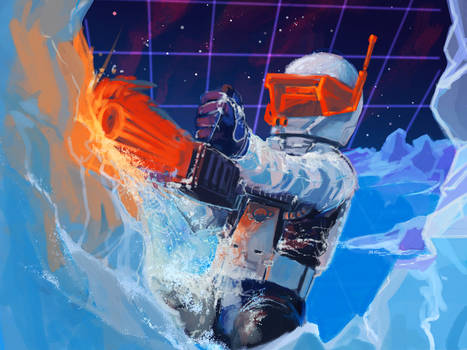What are some of your favorite science fiction books and why? If you had to pick only a few. As of writing this post my favorites are the following.
- The Quantum Magician
- Three Body Problem
- Children of Time
I tend to like in-depth explanations of the fictional science that exists in-universe as well as a good mystery.
I really enjoyed the ‘Foundation’ series by Isaac Asimov. ‘Rendezvous with Rama’ by Arthur C. Clarke is a great one as well.
Asimov is my favorite author
really love all his short story collections, he even did some (light) mystery ones
I am currently reading a collection of all of Asimov’s short stories. That will take a while, it’s a 2339 page epub. In the beginning there are some lesser stories but they keep getting better and better.
I’m a big fan of world building and well fleshed out settings and characters. I love getting lost in descriptive and unique imagery.
- Hyperion by Dan Simmons - feels like such a lived-in universe, some interesting tales, and a horrifying antagonist in the Shrike.
- Neuromancer by William Gibson - cyberpunk ahead of its time, great story, incredible atmosphere.
I feel like you’d really enjoy House of Suns by Alastair Reynolds. One of the most “lived-in” feeling worlds I’ve encountered since Hyperion. I’m reading Pushing Ice now and haven’t read any of Revelation Space yet, but I’m planning on it.
I really enjoyed Project Hail Mary.
Didn’t know about this, going to go out and get this one, thanks! I really enjoyed reading The Martian by the same author way back when.
I recently read Artemis by Andy Weir, but the protagonist had so much teenage angst that it was difficult to finish despite its short length. I’ll have to try one of his more popular books instead.
I haven’t read Artemis but I’ve seen multiple people say that it is his weakest work. There is no teenage angst in this one.
The Expanse series has done it for me. Best books I’ve read in a long time.
I completely agree and love The Expanse. It’s more character driven than I prefer, but it is still in my top 10 for sure.
My favourites are (still) HitchHikersGGTG and Good Omens. I just adore that writing style, I guess.
Just some of my favourites:
-
The Forever War - Joe Haldeman: Basically the vastly better Starship Troopers. Just don’t read to sequel.
-
Old Man’s War - John Scalzi: Very much feels like an modern update of The Forever War
-
Cities in Flight - James Blish: I just love the bonker’s idea of whole cities declaring their independence from Earth and just buggering off into space
-
Ubik - Philip K. Dick: Hard to pick a favourite Dick, but this one just has all the mindfuckery and weirdness of that particular author in a perfect blend
-
- Three Body Problem (and sequels, especially The Dark Forest:) it’s good scifi, though I worry that a lot of people missed the message.
- Consider Phlebas/Use Of Weapons: tragic space opera is my favorite kind.
- Gideon The Ninth: sci-fantasy popcorn with a sass-mouthed narrator.
- Providence: Fresh take on ubiquitous scifi tropes, and I’m a fan of Max Barry’s punchy writing style.
How do you feel people missed the message?
I sometimes see people saying Wade was right or that he would have saved the day or some such.
Great list in the comments! Let me add some classics:
- Fred Hoyle: Black cloud is as realistic a sci-fi can be
- Lem: Fiasco - not his most famous book, but probably the best
Just a few? I can’t pick. Here’s some I like to tell people to read though. I limited myself to five series you might not have heard of (and thus didn’t say stuff like the Expanse and the Culture and Altered Carbon).
The Poseidon’s Children series by Alastair Reynolds (the first is Blue Remembered Earth). It’s not as dark as the Revelation Space books, more of a hopeful future. Africa is ascendant, AI is art. Concepts like pan-spermia and uplift are post religious life philosophies that people dedicate themselves to and a character who is a combination of Elon Musk and the Pizza Grandma from Stephen Universe dies at the beginning of the series - and is a main character. Revelation Space seems to be more popular, but I consider it Reynolds’ Magnum Opus.
The Suneater books by Christopher Roucchio are probably the series I most look forward to new releases of. It’s a little bit thematically similar to Red Rising (but not as YA) in the sense that both series are
1) Narrated in the first person by a Great Man (in the Theory of History) sense who is really just a confused and wounded boy swept up in the tide of history. 2) Both feature space empires openly inspired by Imperial Rome. 3) Both of said space empires are ruled by a genetically modified ruling caste. 4) Graphic violence and cheapness of human life are central themes. 5) Both authors are prone to poetic prose and waxing philosophically about the human condition.All that is to say, if you liked one you’ll probably like the other, but something else to keep in mind about Suneater is that the whole series is a homage to Science Fiction and a bunch of other stuff. No, really, one of coolest parts of the first book is inspired by an obscure J Pop song by Maya Sakamoto and makes reference to the lyrics throughout in various different ways. Roucchio even admits as much. Everything is inspired by something, to the point that at the very beginning it feels obnoxiously derivative of Dune and Star Wars (push through this, it’s common for people to get frustrated in the first couple chapters of the first book). It’s not a rip off if you manage to make it a tribute and I feel like Roucchio ultimately succeeds at this.
I have a bit of guilty pleasure in following G.S. Jennsen’s Amaranthe books (the first is Star Shine). These books have lots of flaws, not the least of which being the Jennsen self publishes and would benefit from an editor who can say no to her. But they scratch an itch for military adventure sci-fi that I find it hard to scratch at this stage of my life. Military adventure sci-fi (as a sub genre) is obnoxiously dominated by conservative old white men writing for teenage boys (and they seem to be writing more aggressively conservative stuff lately… I blame the Hugo drama of recent memory). G.S. Jennsen if a female writer who writes books with strong and powerful female characters, sensitive and emotionally vulnerable male characters, gay characters, etc).
If you read my next two paragraphs, you’ll probably think “Why the hell would I read these thebardingreen@lemmy.starlightkel.xyz? You make them sound stupid.” So before you do, I want to say that while my pleasure in these books is a little guilty, that pleasure is actually great. When a new one comes out, I immediately buy it direct from the author (because fuck Jeff Bezos). If you, like me, have found military adventure sci-fi to be frustratingly male and conservative and if you enjoy good, entertaining stories for the sake of them being good, entertaining stories and you’re willing to overlook a few flaws, READ THESE, you will have fun.
My standard warning about Jennsen is that the books are a genre mash of what I think are her two favorite genres: Military adventure sci-fi and… trashy bodice ripper romances. The kind with titles like “Highland Passion” and “In the Captains Arms.” The kind of 90s supermarket checkout line garbage your cat lady aunt has 5 bookshelves of in her basement. Everyone (I mean everyone) will find their perfect, “forever partner”, who they will love passionately, deeply and monogamously literally forever (the later books have a 100,000 year old cyborg woman who’s mind gets erased and she manages to refind her lover from before the mindwipe and gets to fall in love with him all over again as she rediscovers herself.
Another thing about these books is that the technological escalation strains credulity. Book one takes place in a classic early interstellar era (slow FTL, nearby colonies rebelling against Earth). Book 18, taking place a mere generation later, mostly following the same characters, has escalated to artificial universes and universe hopping, warp bubbles that can shield whole planets, post singularity human / AI fusions that can wormhole themselves across intergalactic space (or do a kind of astral projection thing where they can just send their disembodied minds to go spy on enemy post singularity gray goo entities on the other side of the local super cluster - no, that happens).
I just read Semiosis and Interference by Sue Burke and REALLY liked them much more than I was expecting to. I don’t know that I’ve ever encountered books quite like them. The physical science is a little vague and soft but the biological science is really cool (and totally inspired by all that stuff you’ve read about how the roots and fungus in an acre of forest have more chemical connections than the human brain has synapses). The first book is like a series of short stories, set on a planet where the plants are sentient (and some are sapient) and the human colonists form a symbiotic relationship with them over the course of 100 years or so. Also, lots of pacifist political philosophy (if that doesn’t intrigue you, it will probably seem heavy handed, as an anarcho-pacifist myself, I quite enjoyed this aspect). Funny enough, I probably would have passed these over after reading the synopsis, but ChatGPT talked me into reading them after I gave it a list of my interests and personal sentiments and it was 100% right.
Taking a swing back into harder sci-fi, I also just read Daniel Suarez’s space entrepreneur books Delta V and Critical Mass. A thinly veiled Elon Musk like character over leverages his personal wealth to launch a secret (the crew don’t know just how secret), probably illegal asteroid mining mission. The second book is about their highly politically charged return to Earth and a second mission to mine the lunar surface, and I liked it much better than the first book. The first book is fun, but is kind of laying the groundwork for the second book which is more about building a near future space economy / society, much the way Daemon was a fun technothrillar laying the ground work for the weirdly libertarian yet progressive gamified political thought experiment that was Freedom. I found Suarez’s other work to be pretty lackluster after Daemon and Freedom so these were a nice surprise.
Excession by Iain M Banks is one of my Culture favorites. I really like the far future universe he built with all its anarchy and culture clashes. Jeff VanderMeer’s Ambergris books are my favorite kind of creepy weird. The first book is massive and a bit of a slog to read but worth it in my opinion. Just like everyone else I like the Foundation series by Asimov.
deleted by creator
For me it is Foundation series because I like it’s themes and how they are presented, I really like some characters like Mule and Hari Seldon and it is very interesting to read.
I’m currently reading The Left Hand of Darkness, and so far enjoying it a lot.
I haven’t read Quantum Magician but certainly agreed on the Three Body Problem and Children of Time. Fantastic books.
Some others I really like:
- This Is How You Lose the Time War - short, poetic. Love it.
- Red Mars trilogy and really anything by Kim Stanley Robinson. Oh also in particular The Years of Rice and Salt
- Diaspora by Greg Egan and also much of his other stuff
- Player of Games and Use of Weapons from Ian Banks’ Culture series. Haven’t read all of them yet.
- Ancillary Justice
I don’t see many people recommending Ancillary Justice, but really enjoyed the series. I thought it was a pretty light read as far as Sci-fi goes, but it ticked all the right boxes for me.
I wouldn’t call AJ a light read, just because you spend so much time wrapping your brain around what the narrator is doing and the cultures are so deliberately weird. All the more rewarding for it though imo.
I really enjoyed Stranger in A Strange Land by Heinlein… Its a classic and even though some concepts are a bit outdated, I think overall its amazing. Actually most of Heinleins books are my go to when I just want a lazy relaxing read. I’ve read them all so many times, its like visiting comfy friends.
This book is still really solid ; I didn’t really mind the moments of “oh this was SO written several decades ago.”








